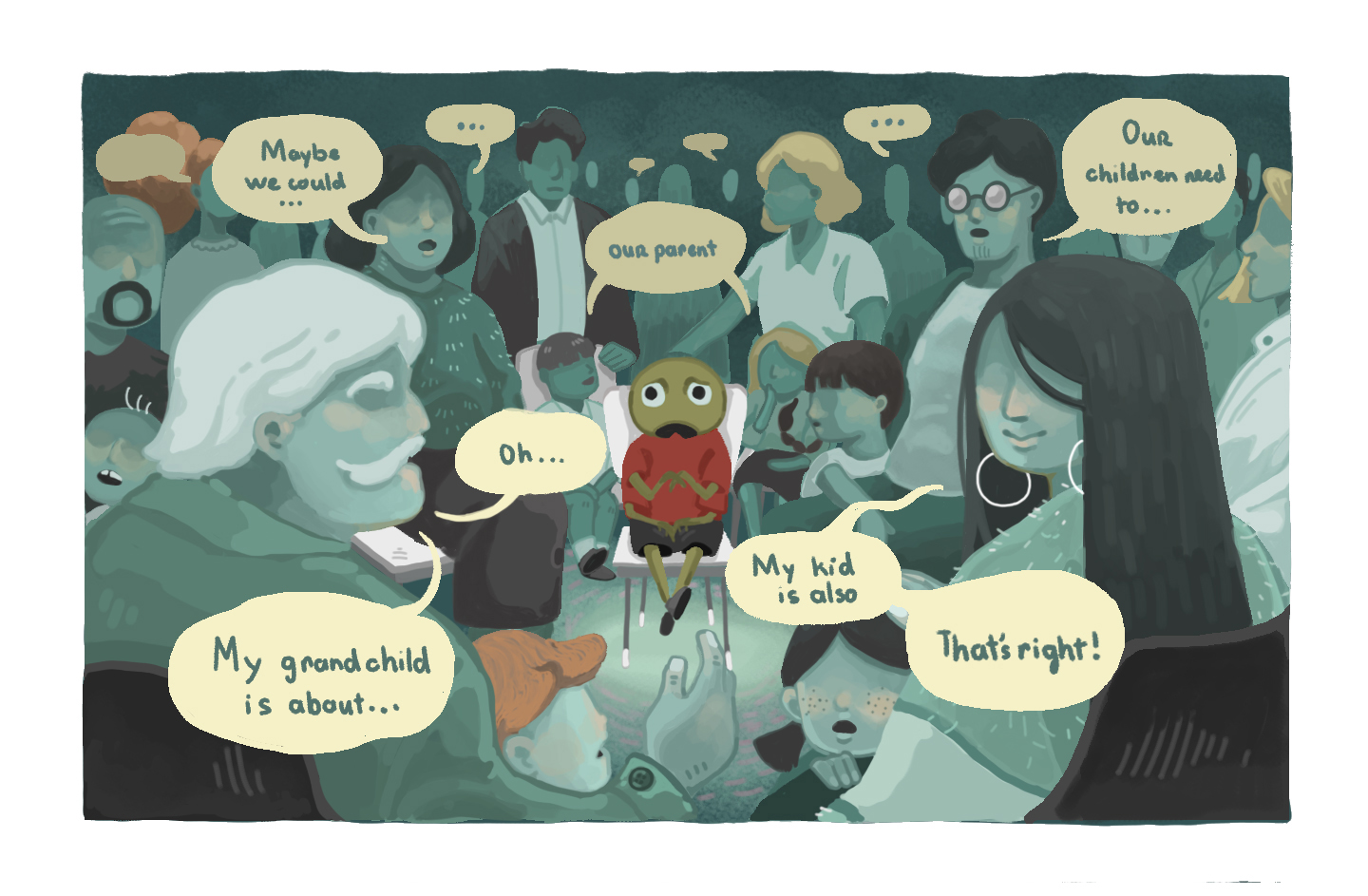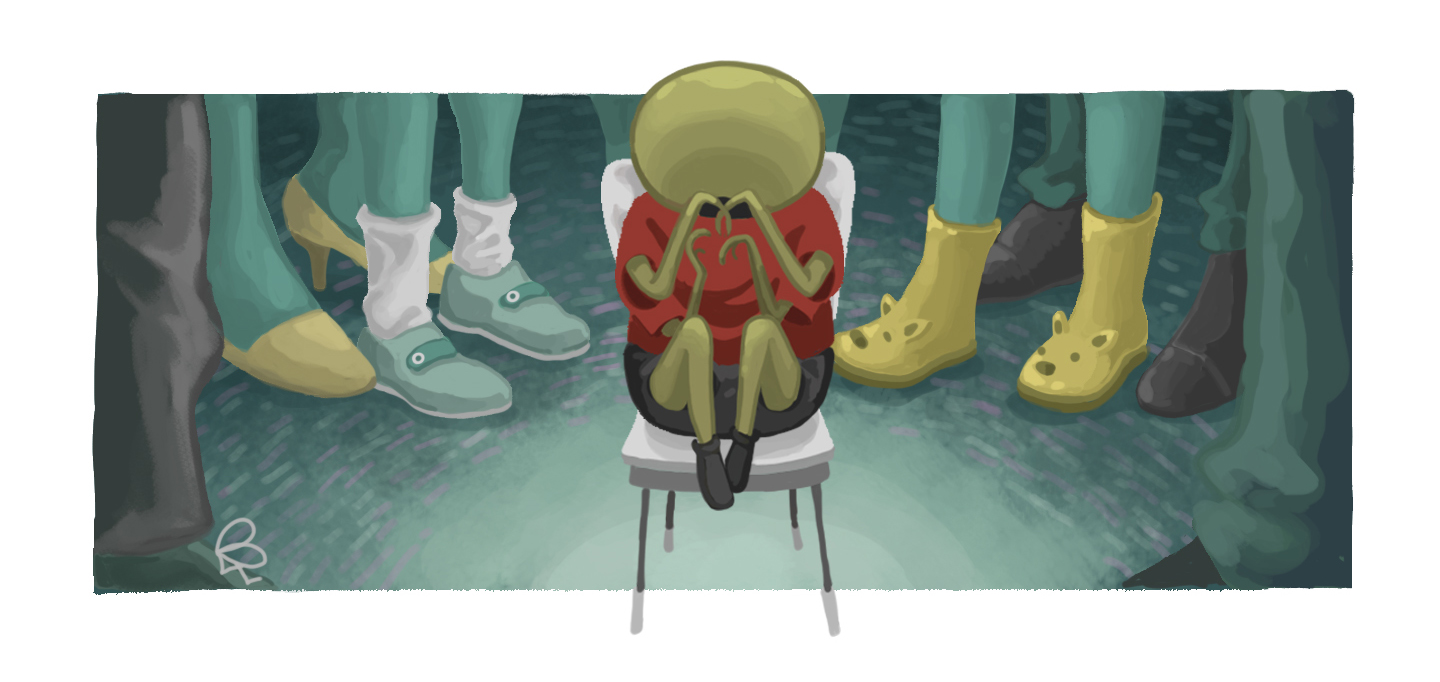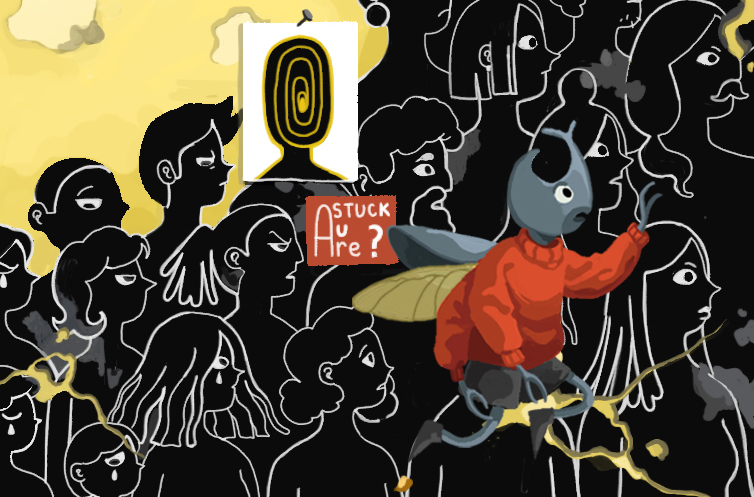
10 Jan Losing a parent through domestic homicide can change a child irrefutably
Support must respond to identity-based distress and foster belonging. Report by Oliver Eastwood
A child’s life is turned upside down when one of their parents is murdered by the other parent or their partner.
They suddenly lose not only the victim – usually their mother – but also the perpetrator – usually their father – to jail or suicide. Daily routines and social networks are disrupted as these children navigate a new reality with unfamiliar caregivers or extended family who are likely dealing with their own traumatic grief.
Most of these children are likely to have experienced years of violence in the home and have witnessed the murder or its aftermath. The complexity and magnitude of these experiences and their associated loss puts these children at serious risk of mental ill health.
Despite this, remarkably little is known about these children.
In fact, multiple researchers have described child survivors as the “neglected victims’’ of domestic homicide due to an alarming lack of data on those bereaved.
Although limited, existing research on children’s mental health and wellbeing post-homicide shows a diverse range of negative consequences across their psychological, social, physical and academic functioning.
This includes symptoms of posttraumatic stress (like intrusive memories, avoidance and dissociation), mood disturbance, sleep problems, self-harm and suicidal behaviours, attachment difficulties, stigmatisation, weight and appetite changes and school dropout.
While these findings highlight potential consequences of bereavement, they tell us little about how children themselves understand this experience.
The right to be heard
The relative absence of their voices in existing research fails to honour young peoples’ fundamental right to be heard. It’s also at odds with the principles of trauma-informed care, which champion empowerment, voice and choice as potential antidote to the silencing of childhood trauma survivors.

Our research project aimed to counter this by directly hearing from people with lived experience of being bereaved by domestic homicide.
The team’s work involved interviews with 70 people with lived, caregiving and/or professional experience of domestic homicide across Australia, the UK and Ireland.
Among them, we spoke to twelve young people and adults in Australia (including siblings) who were children when one of their parents murdered the other – nine of the parents killed were mothers and two were fathers.
Our team then analysed these interviews to explore patterns of shared meaning. One of our key findings concerned how bereavement affected a child’s identity.
“I wasn’t living a normal life”
Many described a pervasive sense of feeling somehow different, or “not normal”, after their parent’s murder. This otherness was often defined in comparison to their friends or peers who had no shared experience of this type of traumatic loss.
Coveting the “normal” lives of those around them, some participants internalised this sense of difference – expressing their identity in terms of somehow lacking or being incomplete.

“I felt a really strong urge to just, just be normal, actually, that’s a good way to put it. To just be normal and feel normal without this enormous kind of darkness and kind of hole that, that I hadn’t yet processed, kind of playing a role in my identity.”
“I felt like I was always missing something, like there was a missing piece in the puzzle… I knew I wasn’t living a normal life and I knew that everyone else was, and everyone else had something I could never have.”
“I’m alone. I’m the weird kid”
Feelings of isolation and alienation seemed to be a key consequence of this identification with difference.
“A lot of my thoughts was, ‘Oh, I’m alone. I’m the weird kid, no one else has ever gone through this.’”
“My friend’s parents were all alive and I just had nobody to talk to about the fact that I didn’t have my mum around. And even that felt so lonely.”
While some people were able to access helpful support from trusted mental health professionals, others were not or described invalidating experiences that only exacerbated their problems.
For example, one young person described the burden of having to tell and retell their story to multiple professionals.
Others described experiences with ill-equipped practitioners who were uncomfortable discussing trauma and instead recommended “coping mechanisms to hide, forget about it”, or “going to church” as their “only other option.”
“This is not the place I wanna be”
Some participants described how attendance at non-specific support groups led to feelings of further isolation by reinforcing their differences from others.
“All the kids there had parents, they just weren’t living with them. And I thought like ‘No, this is not the support group I’m trying to be at, you know?’ I didn’t feel in the crowd whatsoever, I felt more left out because they would come up to me and be like ‘Oh so is your mum in jail or she just doesn’t want you?’ and I’m like ‘She’s dead’. This is not the place I wanna be.”
There was striking consensus in our participants’ reflections on peer support from other people who had also lost a parent to domestic homicide. This was described as lacking and something they felt would have been key in countering the isolation and alienation that characterised their childhoods.
“So just having that person that has been through that same thing. To talk to, or just spend time with them, remind you that, you know, you’re not the only one that’s been through this, like, you’re not alone.”
The way participants related to their parents after the homicide also seemed to play an important role in their own self-understanding.
We found that they generally strived to maintain an ongoing connection with their deceased parent through things like ritualised grieving, speaking to them out loud, describing them in the present tense, embodying their values, connecting through photographs and important belongings and publicly sharing their story.
This represented an important source of meaning-making and self-connection.
Resolving a crisis of identity
In contrast, our interviewees generally rejected the perpetrator parent, condemning their actions, rarely mentioning them or using words that denied any familial relationship – like “I don’t have a father.”
But this process was not always simple or linear.
Some participants grappled with distressing tensions between continued love and hatred for their surviving parent or expressed a wish for contact or meaningful connection under safe circumstances.
An awareness of shared biology sometimes inspired guilt, shame and fear of inheriting or passing on perpetrator parent traits.
“I feel almost ashamed that I am his daughter, um… because it’s just like, I wish and I pray that I am nothing like him and I will never ever be anything like him.”
For this young person, it was ultimately the connection to their victim parent’s traits that seemed important in resolving this crisis of identity.
By positioning their mother’s love and compassion as more central to the sculpting of their own identity, they were able to resolve this tension and take pride in themselves as a legacy of that parent.
“I hear stories about her and how much of a loving person she was: caring, kind, considerate. And I’m thinking ‘Yep, you know, I have all of her genes’… I couldn’t be prouder of who I am because of her, who she made me to be.”

Support through lived experience
While evidence-based psychological intervention for symptoms of post-traumatic stress and grief remains essential, our findings point to the need for additional support as identified by those with lived experience of domestic homicide.
Peer support may provide a particularly powerful means of instilling hope and connection with those who ‘get it’. Professionals and caregivers might also help young people connect with their deceased parent to work through identity-based distress.
Either way, it is essential that those with lived experience are involved in the development, design and implementation of support for these young survivors.
This article is part of a series on the impact of domestic homicide on children and young people. While there are usually one or two authors mentioned, the whole research team and several people with lived experience have contributed. The illustrations have been hand drawn by Thu Huong Nguyen (Abigail).
Are you looking for support?
In Australia, good places to start are Kids Helpline, Life Line, Beyond Blue and 1800 Respect. These are all free of charge. You can also contact your doctor (GP) to discuss a subsidised Mental Health Treatment Plan, and you may be able to access counselling through your employer’s Employee Assistance Program (EAP) or your TAFE/university’s counselling services. You may also be eligible for support, counselling or financial assistance through your state or territory Victims of Crime service.



